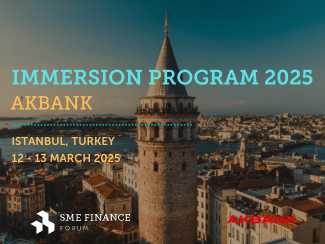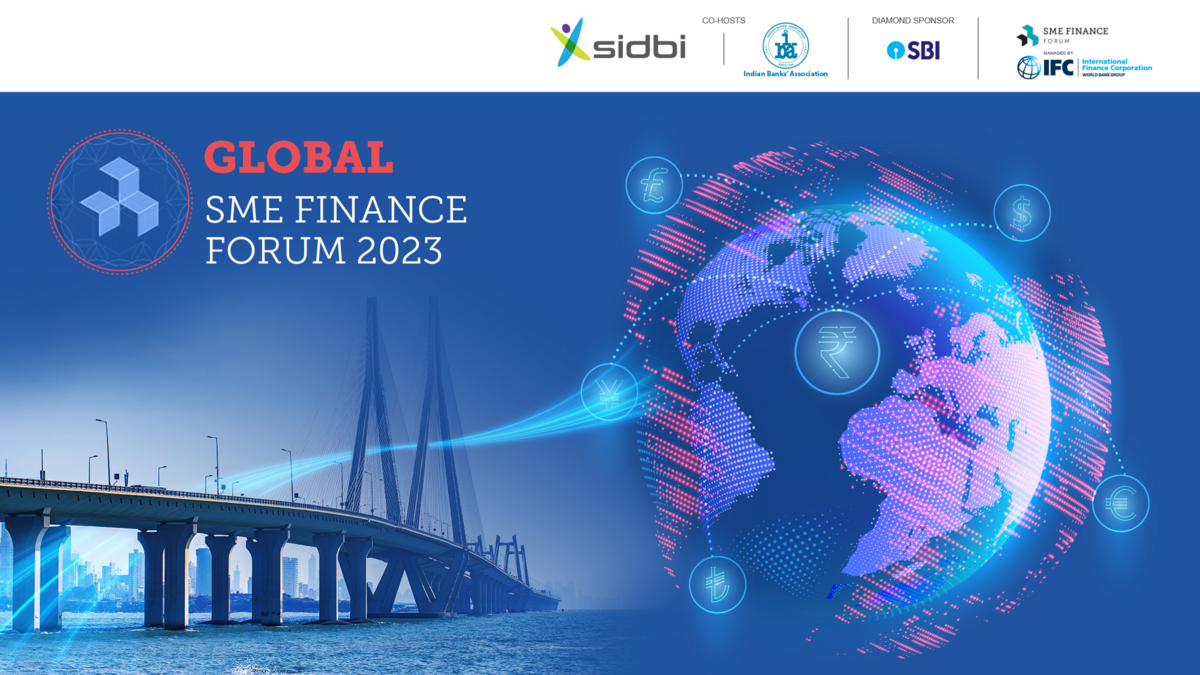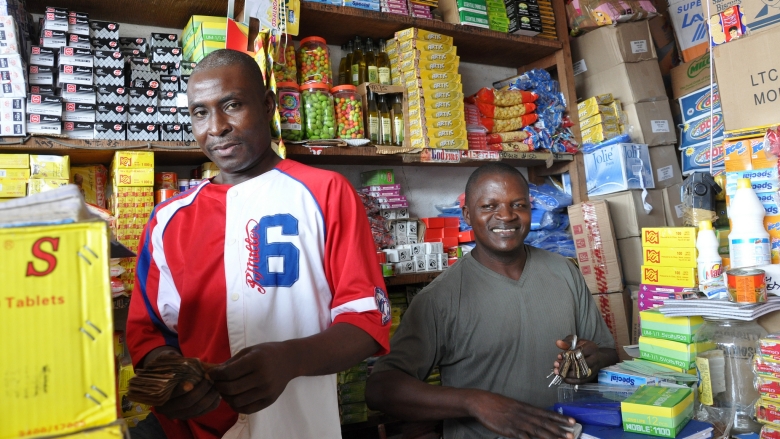Blog
The Case for Impact Investing: Addressing Capital Lending & Social Reach in India
This blog is a summary of our “SME Lending & Social Impact in India” webinar with U GRO Capital.
Small businesses in India employ over 100 million people or 40% of India’s workforce and account for 29% of India’s GDP and 49% of its exports[1]. The current SME finance gap in the Indian context amounts to $221 billion or 10% of the country’s GDP. However, credit products are designed to serve only a section of the MSMEs (approximately 600,000 of them) leaving out a whopping 60+ million MSMEs. Simultaneously, the volume of impact investments has rapidly grown since the inception of this market in 2001. Since 2010, cumulative impact investment in India has equaled over $5 billion[2]. In 2015 alone $1 billion in impact investment were made, and according to McKinsey, India has the growth potential to increase impact investments by 25% by 2025, totaling in an additional $6-8 billion invested.
While impact investments are a promising solution to bridging the SME finance gap, there are several challenges in this sector. According to Brookings India, the top three significant challenges in the Indian context were appropriate capital across the risk-return spectrum, suitable exit options, and impact measurement.
On June 22, 2022, as part of the open webinar series, the SME Finance Forum in partnership with the small business lending platform, U GRO Capital gathered a panel of expert financial practitioners, ranging from private equity specialists to multilateral development bank representatives to discuss their work on closing the financial gaps of MSMEs in India. The session was moderated by Matthew Gamser (CEO, SME Finance Forum) together with Shachindra Nath, Vice Chairman and Managing Director of UGRO Capital. The panel speakers were Deepa Hingorani (Vice President at IFU, The Danish Investment Fund for developing countries), Ms. Bama Balakrishnan (Chief Operating Officer at Northern Arc Capital), Aditya Mohan (Senior Investment Manager, Triodos Investment Management), and Nikunj Oli (Investment Specialist, Asian Development Bank). Mr. Nath presented important statistics about the role of MSME’s in the growth of the Indian economy. Specifically, he pointed out that 90% of India’s MSMEs are self-financed, or financed through informal channels, further exacerbating the need for credit. Finally, according to Mr. Nath, only 18% of India’s MSMEs are addressed by formal financial institutions, which calls for a deep analysis on the contributors and limitations to accessing small businesses across the country.
The prologue of the discussion ensued from a concise presentation on the recent U GRO impact assessment conducted by Sattva Consulting, a social impact consulting firm. To better capture, assess, and communicate its impact on transforming MSMEs across India, U GRO, guided by Sattva Consulting’s comprehensive methodology, confirmed that it has reached over 16,000 active MSMEs across nine sectors. Amongst the sectors, U GRO has contributed to significant Sustainable Development Goal (SDG) impact through lending. Most notably, U GRO has successfully disbursed capital towards Goals 2 (Zero Hunger), 11 (Sustainable Cities and Communities), 3 (Good Health and Well-Being), 4 (Quality Education), and 7 (Affordable and Clean Energy), totaling INR 754.9 million. During the COVID-19 pandemic, most MSMEs suggested declining margins due to poor market access, low productivity, and limited access to finance. U GRO stepped in as a loan capital provider to provide benefits that enabled MSMEs to maintain liquidity, purchase machinery, assets, and inventory, expand geographically, and mitigate COVID-related financial hurdles. Specifically, out of all of the U GRO customers Sattva Consulting interviewed, more than 90% felt that the loan products they secured sufficiently met their varying requirements. Overall, U GRO capital unlocked a 5-20% increase in available working capital for the businesses it lent to. Spearheaded by the leadership of Mr. Nath and the executive team, U GRO represents one of the main financial catalysts actively working towards closing the financial gap for enterprises all over India. The report was commented by the panelists, who also spoke of their own institutions work in generating impact by serving MSMEs.
Ms. Bama Balakrishnan, Chief Operating Officer at Northern Arc Capital, spoke of her firm’s effort towards accelerating the flow of impact capital to MSMEs. Set up with the mission of facilitating access to finance for the perceived underserved and emerging market segments. Northern Arc Capital today works across 6 sectors which include microfinance, MSME, Vehicle, Consumer, and Agri-Supply Chain finance. They work with 250 financial institutions and platforms across India, as well as intermediate financing with over 400 investors, both domestic and international. Through their partners, Northern Arc Capital has reached over 50 million end customers, 75% of which are women. According to Ms. Balakrishnan, the proportion of women borrowers among MSME borrowers in general continues to be quite low. Northern Arc Capital has been successful in raising approximately $13 billion for its partners across all sectors, however what has shaped their strategy have been the increasing digital footprint that MSMEs have in India, through a nation-wide API network, which improves the data availability for debt underwriting. Thirdly, Ms. Balakrishnan explained the need for on-ground collection capabilities. “Digital models combine the power of technology to reach customers and deliver products, and the ability to actually reach the customer and manage the portfolio,” Ms. Bama Balakrishnan pointed out.
The emergence of partnerships between banks and financial institutions, such as U GRO, delivers credit more efficiently. Unfortunately, women and rural MSMEs are still largely left out of financing schemes. However, there are still efforts taking place, thanks in part to the urgency provoked by the COVID-19 pandemic. Ms. Balakrishnan explained how specifically designed liquidity mechanisms and guarantee mechanisms aimed at supporting the flow of capital have helped push past the limitations highlighted above.
Ms. Nikunj Oli, Investment Specialist at the Asian Development Bank (ADB). Ms. Oli works with the Financial Institutions Division in ADB’s Private Sector Operations Department. Ms. Oli’s team works directly to apply interventions through direct and indirect financing such as guarantees. One of the ways, ADB has worked to address financing for MSMEs is by working with partner financial institutions to provide partial guarantees for the funding they provide to MSMEs. There are currently 14 microfinance institutions in India that are benefitting from the Microfinance Guarantee Program, and they in turn funnel funding directly to MSME owners.
Speaking of challenges, Ms. Oli expressed that ADB has limited resources when it comes to handling the large volume of transactions in India. This results in hyper focused interventions that sometimes asymmetrically favor medium and large size FIs. However, ADB has recognized the issue and is developing an Inclusive Business Program that has a regional focus to capture MSMEs that cater to the bottom of the pyramid by providing quality goods and services to underserved segments. ADB works to address the priorities identified by the Indian government and one of the priorities is to “channel more funding into the lagging states,” explained Oli. India presents a unique case study within Asia, because of the strong governmental support for MSMEs, evidenced by multiple government schemes that have been set up to channel funding to the segment and also by the recent legal update of the MSME definition, resulting in a more inclusive net affected by targeted policies and interventions. Ms. Oli expressed her optimism by noting that there are efforts at the regulatory level on ESG standards and green taxonomy also allows the ADB to target funding to SMEs that do work in the renewable energy and green finance space.
Ms. Deepa Hingorani, Vice President at IFU, The Danish Investment Fund for developing countries, expressed her views and concerns as an equity investor. More specifically, Ms. Hingorani explained that the risk-return equation for incoming equity investors presents challenges that may deter them from entering the Indian context. In her view, the entry valuation assumes an ideal operating scenario over the investment hold period, whereas in reality this will be regularly interrupted by external factors. The entry valuation expectations for equity investment in India presents a key challenge that is yet to be addressed. As for MSME financing, for the space to grow in a sustainable manner, there needs to be a consistent flow of capital, something that requires high levels of confidence from both investors and lenders in the ability of the operators to deliver performance in a responsible manner. Ms. Hingorani spoke of the necessity of “an overall strong internal control framework, and high governance starting right from the top to the bottom” to address the investor’s confidence. Lastly, she highlighted the need for strong and clear indicators to underpin the purest indication of impact generated by an investment.
On a positive note, Ms. Hingorani explained that digitization affords companies and investors with a plethora of data that can be used to measure, identify, and record impact creation, as also illustrated by U GRO in their impact report.
Mr. Aditya Mohan, Senior Investment Manager at Triodos Investment Management, the asset management part of Triodos Bank, a Dutch banking institution focusing on ethical banking. Mr. Mohan spoke of the challenges of operating in the MSME lending side mainly due to the high number of asset lending providers. Banks and lending companies are called to come up with ways to target unique aspects of MSME financing in order to differentiate themselves from competitors. Mr. Mohan explained that the evolution of technology and policy in India provides a unique opportunity for collaboration between non-bank lenders and banking institutions to keep capital costs low and efficient. However, according to him, many of these products are still early in their journey and need to expand further to reach their full impact potential.
The panelists engaged in a brief Q&A, where Mr. Shachindra Nath of U GRO raised a significant question on the current status of MSME financing as a mainstay source of capital. Ms. Balakrishnan agreed that in recent times MSME financing has been overtaken by other priorities, primarily because of overseas investors’ inability to travel to India due to the pandemic. The restriction on travel meant that investors could no longer observe the credit environment on the ground and get a sense of where their money can generate the greater impact. Ms. Balakrishnan also raised the issue of asymmetrical and imperfect information on the credit lending environment in general.
Mr. Nath ensued the discussion amongst the panelists by shifting to the role of multilateral organizations, such as ADB, in deploying partial credit guarantee schemes to help states push through times of economic slowdown. Ms. Oli explained that the ADB is much more focused on helping the private sector, while discussion with the Indian government mostly concern the facilitation of foreign investment with limited space for other types of interventions.
Through their perspectives, the panelists have reaffirmed the importance MSMEs play in driving impact in India, and how this market can serve as an important example to the rest of the world. The onset of the COVID-19 pandemic has not forced investors and lending institutions to retreat from financing these entities that serve as an important pillar of the Indian economy but have instead reinvigorated the relationship between SMEs and the Sustainable Development Goals. The focus should now shift to developing fully encompassing and detailed systems for impact measurement; ones that can be tweaked and adapted to study specific types of interventions, rather than deploying an umbrella strategy that may incompletely capture the nuances and needs of MSMEs across sectors.
[1] Arvind. Mediratta, " Prioritise small businesses and MSMEs to support inclusive growth: Arvind Mediratta," Forbes India, https://www.forbesindia.com/article/new-year-special-2022/prioritise-small-businesses-and-msmes-to-support-inclusive-growth-arvind-mediratta/72783/1.
[2] Shamika, Ravid. Et al. “The promise of impact investing in India,” Brookings India, https://www.brookings.edu/research/the-promise-of-impact-investing-in-india/.









